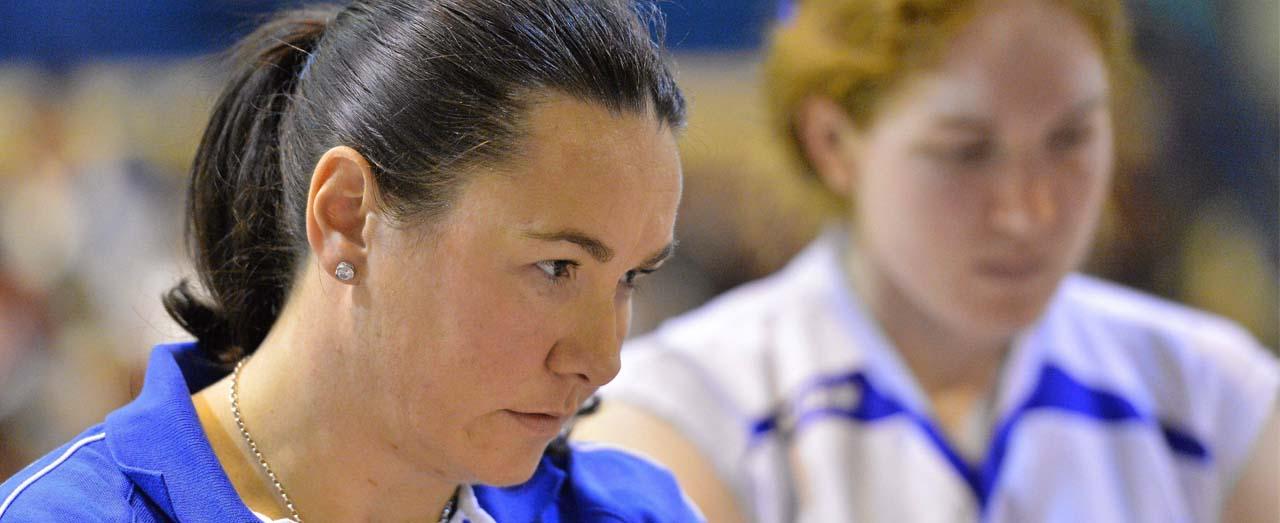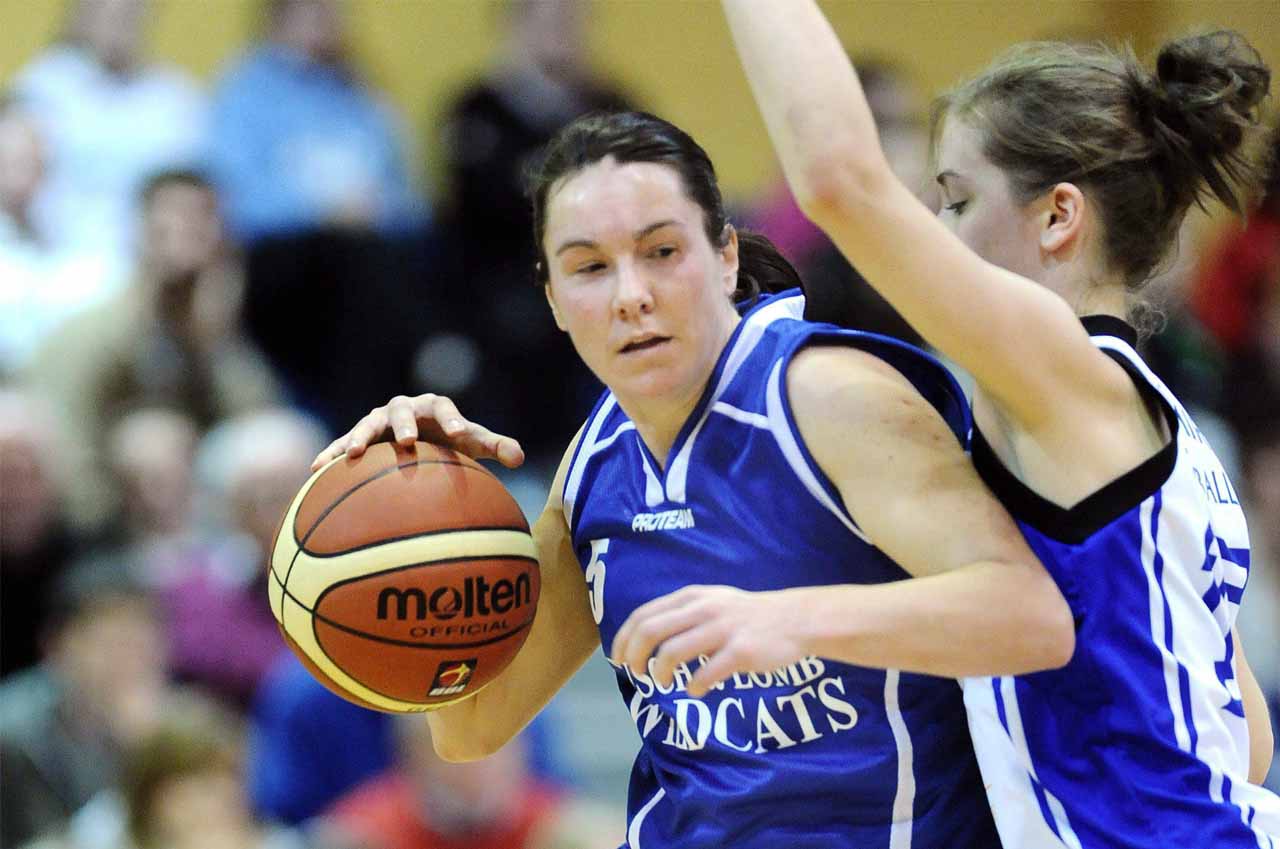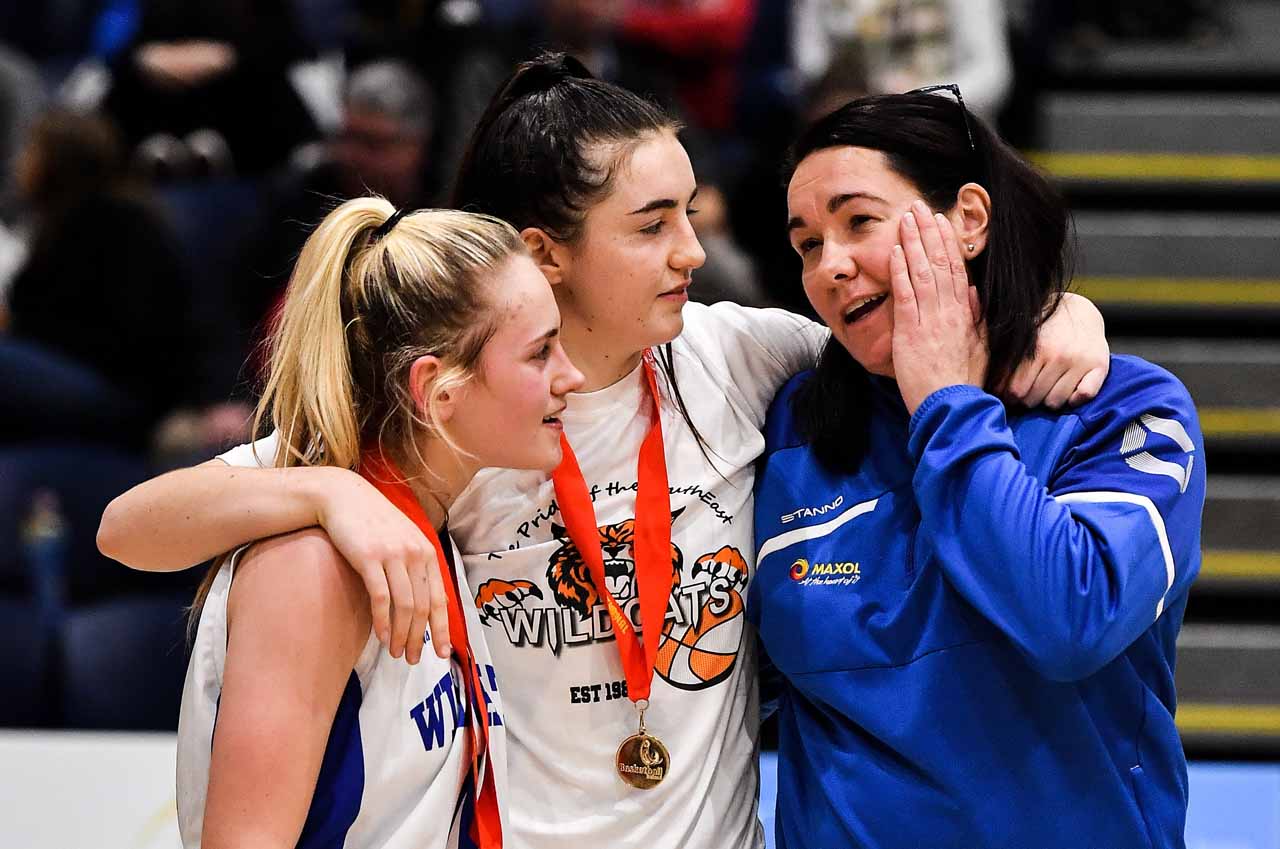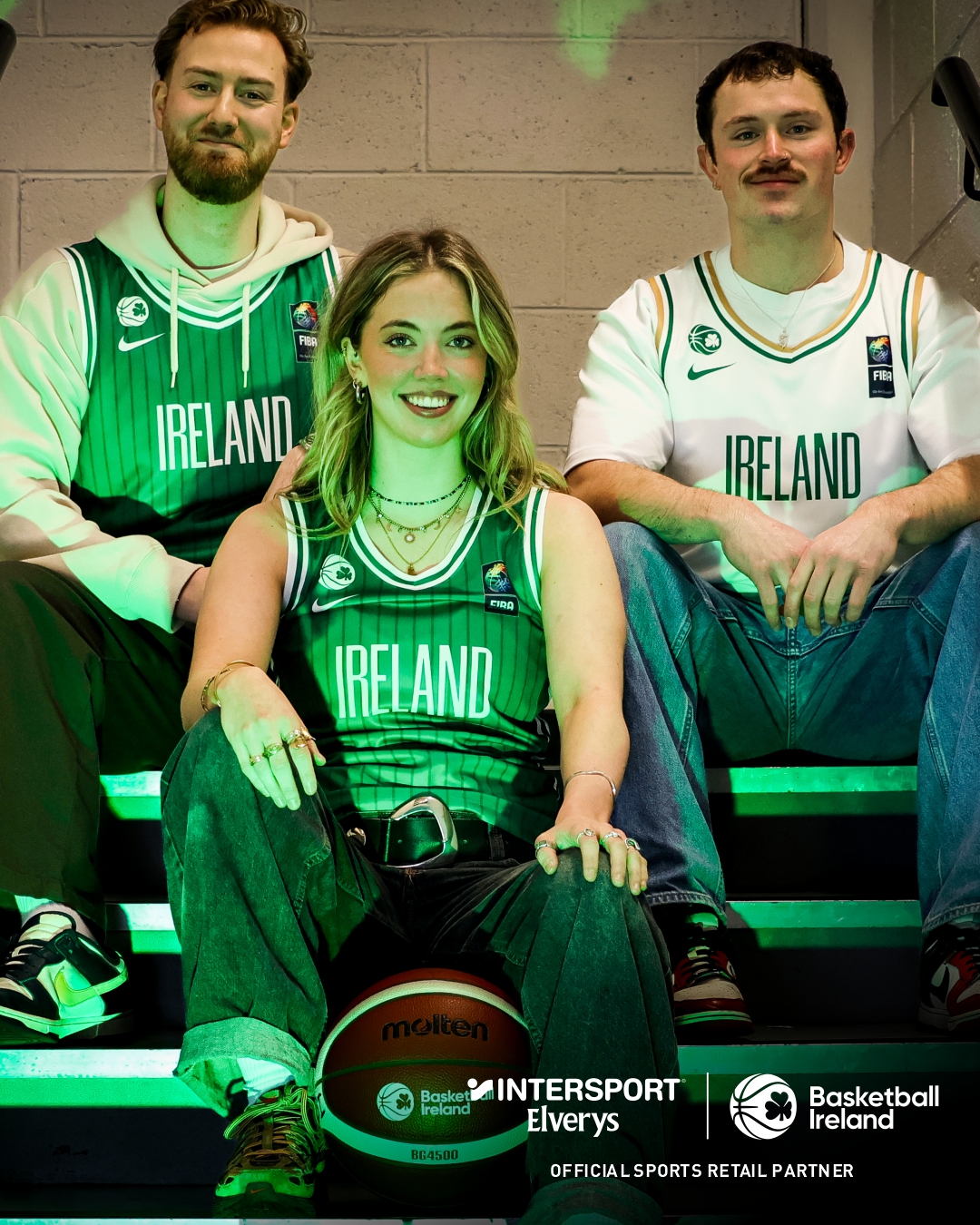Jillian Hayes - WIT Wildcats BC

Head coach: Women’s Super League team, Maxol WIT Wildcats.
Assistant coach: Ireland Senior Women’s team
Interview
Can you talk us through your playing background?
I played for Wildcats from u12 up to senior level, winning six leagues, three cups and four championships at senior level and also one U19 cup. I was named Irish Junior Player of the Year twice, and Senior Player of the Year four times. Internationally, I represented Ireland at U15, U17, U19 and senior levels.
How did you get involved in coaching?
I started coaching when I was about 18. I was in college in WIT studying sport, recreation and leisure management and I always had one of the underage teams with Wildcats while I was still playing myself. I took a break when I started my family, and got back into coaching when Kate was five years old - so I am back in coaching 12 years now.
What kind of teams have you coached over the years?
I’ve been coaching Saturday morning miniball in our club for about 10 years – this is ages 6 to 12. I have coached u12 all the way up to u18 for the last number of years with Wildcats and last season, I coached the Super League women’s team. It is mainly girls I coach, but at the Shooting Hoops camp the past few years, I have been coaching the senior boys and I’ve really enjoyed that. I’m currently also the assistant coach with the Irish senior women’s team.
Who would you say was a role model for you as a coach and why?
My very first coach was Evelyn Hearn, she was my French teacher and my first basketball coach. She was a great sports woman herself and was a scratch golfer. I was a tall and very awkward first year when I started playing for her. She believed in me and taught me all the basics so well. She was so hard on all of us, but we all loved her and kept going back for more. She taught us discipline, skills, life lessons and mostly a love for the game, which has stayed with me forever. Sadly, she has passed away now, but I like to think she passed her skills onto me and now I’m passing them on to the next generation in Waterford.

What is the most important thing for you when coaching younger boys and girls?
To keep them involved! Some just quit too early, it’s to try and get them to hang in there. We all have bad days in our life and some fall out of love with the game. This may only be a phase though, so I always encourage them to keep training - we all need the exercise to keep fit either way so why not do it with basketball? Hopefully the love for the game will come back – but as a coach, it’s all about being patient. I think the transition from underage basketball - where we all play equal time and it’s all about development - to the next level - where it all gets competitive and playing time is limited – can be tricky. I always tell younger players to keep working on their game and that their time will come, but that they might have to give it time.
Have you any tips you'd like to share on keeping girls engaged in sport - particularly at the 14-18 year old age group?
Sport opens up so many pathways in life for you: it teaches you invaluable lessons that you can’t learn anywhere else and friendships that will last a lifetime. I feel many in this age group want to grow up so quickly and rush onto the next stage in life and can’t fit sport into their crazy life schedule. Sport is demanding and yes, you often have to sacrifice a lot - especially to play at the top level - but it is worth it! Every job interview I have ever had, they have always asked me about sport and always ask about how to be a team player etc. Most bosses will love what sport has taught you. Many of these lessons are vital for becoming successful in other areas of life.
Do you have a favourite drill you use for younger players to keep them engaged in the training session and if so, what is it?
My favourite drill is the Mikan drill. It is a great drill - whatever level you are coaching, I think you can always use this drill. It teaches footwork, right and left hand finishing and most of all, finishing around the basket. You can measure your progress by recording how many you can get in a minute, then move onto how many you can get in a row in a minute, then how many you can get in a row continuously with no time limit and then bring in the mental aspect of the game too.
Any tips you would like to give to young coaches who are starting out?
There is so much information online, you can look up a million drills, but the main thing I would say is to find a level where you are comfortable at teaching. Don't try to be someone else. Be yourself and learn at your own pace, just learn a few new things every year and keep building. Rome wasn't built in a day. I see so many coaches start at u12 level and want to know what the Super League teams are running. This isn’t how it works for me. You need to aim your sessions at the age group you are coaching. If you can teach younger players two or three of the basic skills well, you will be giving them such a solid platform to grow from. Make training and basketball fun so they’ll want to keep coming back for more.
When you first stepped up to coach at National League and/or International level, were you nervous about the step up and how did you deal with that if so?
No, I wasn't nervous at all. I had played National League and international at the top level for 16 years and had had exposure to lots of great coaches, so I knew that I had a lot of experience in the game. The first time I took over at Super League level, I went in half way though the season to replace another coach. I just wanted to make sure that the Wildcats seniors kept playing at this level so all of our younger players had a senior team to aspire to. Locally in Waterford, we get so much support. Our fans are the greatest and basketball provides their Saturday night entertainment so I want it to keep running and I was happy to step up for the club .
What would you say to other female coaches who are considering moving up a level in their coaching careers?
I would say go for it! Men seem to have so much more confidence in going for a coaching position but there is nothing you can’t do. Believe in yourself. It might not be easy, and it is hard balancing everything in your life – I often feel like I am juggling 10 balls at once - but it can be very rewarding. I think it’s especially important for female players out there to give back to the game, someone gave up hours to coach you and it’s a nice touch to pass those skills onto someone else. 20x20 – that’s what it’s all about.
How do you measure the success of a training session?
This depends on the age group. If you’re trying to teach kids something like lay ups at training, you might measure the session to be success if by the end, they can square up and take the two steps. For me, success for this skill would be emphasis on the footwork, not whether they can score the lay up or not. Most people and the kids themselves are only happy if the ball goes in, but coaches need to praise the learning of the footwork first.
How do you measure success in broader terms?
Everyone wants to win and yes, winning a league or a cup is absolutely great and a great measure of success, but there can only be one winner and it’s not always you. In our own club this year we won the u20 cup, but I would measure every hour those kids and their coaches have put in since they started basketball, all the losses they have had since u12 right up to last year where they lost in the u18 cup final. All of that and those losses helped them to achieve success this year. As Micheal Jordan says, in the 9000 shots he missed and the 300 games he lost, he never lost faith or belief and that is why he succeeded. I truly believe in this.
How important do you think it is for coaches to keep learning and developing regardless of level of experience?
It’s very important. Nobody knows everything and there is always something new to learn. There are so many coaches out there – particularly overseas – who are in a full time paid coaching positions while we are all trying to hold down full time jobs and family life and balance it with coaching. We have to take advantage of all the help we can get from those that are doing it full time, every day, and use it to keep learning and developing.
Have you noticed many changes in Ireland in coaching over the years? If so, what?
Absolutely. I think coaching - just like teaching - has changed a lot over the last few years. Kids don't just go to school and sit in a desk and write and relay information the way we used to years ago, they learn in such different ways now and I think sport is the same. I think most coaches, especially at youth level, try to bring a fun element to training and most coaches are always willing to learn and pass on new skills to try further their players in more inventive ways. Also, the use of technology and sharing of data has helped coaches and players to be a lot more prepared for games these days. It can help players to develop if a coach can show them video evidence of what they need to work on.

Where would you like to see coaching basketball in Ireland move to in the coming years?
A few years back, I completed my Level Two course and we met up for a number of weekends and discussed different basketball topics. There were a number of coaches invited in as guest speakers to give us talks and I really loved it (apart from all the written homework we got!). I think meeting up on these weekends and having so many people who just love basketball talk and teach each other about different aspects of the game would be great to have on a regular basis. At the moment, you can do your Intro level course, then move onto Level One after a set time frame. I’d like to see clinics run alongside these courses in smaller groups and aimed at different levels - just a thought.
What is the most valuable lesson you have learned as a player?
Enjoy every minute of your playing career, you get old quickly, way too quickly, so grab every opportunity that you can. Also, there is always more in the tank. There are times when I thought I was going to get sick or pass out while at training, and yet the coach would always get you to do more. This stood to me in the dying seconds of a game when you needed to dig deep and pull out a win regardless of how tired you were. It also stood it me in many aspects of life afterwards.
What is the most valuable lesson you have learned as a coach?
You have to teach players to be able to adapt on the court in the middle of a game and to be able to fix things themselves. You cannot always have a timeout and try to fix things. Great players take control of the game themselves and dig deep in tough situations, rallying their teammates around them and not relying on the coach for every instruction. I think the most valuable lesson I have learned is – “if they don't need you, then you've done a great job.”
Anything else you'd like to add?
If any female coach wants help or support, they are more than welcome to come watch a session next season and come up and talk to me there, when life is back to some sort of normality!

